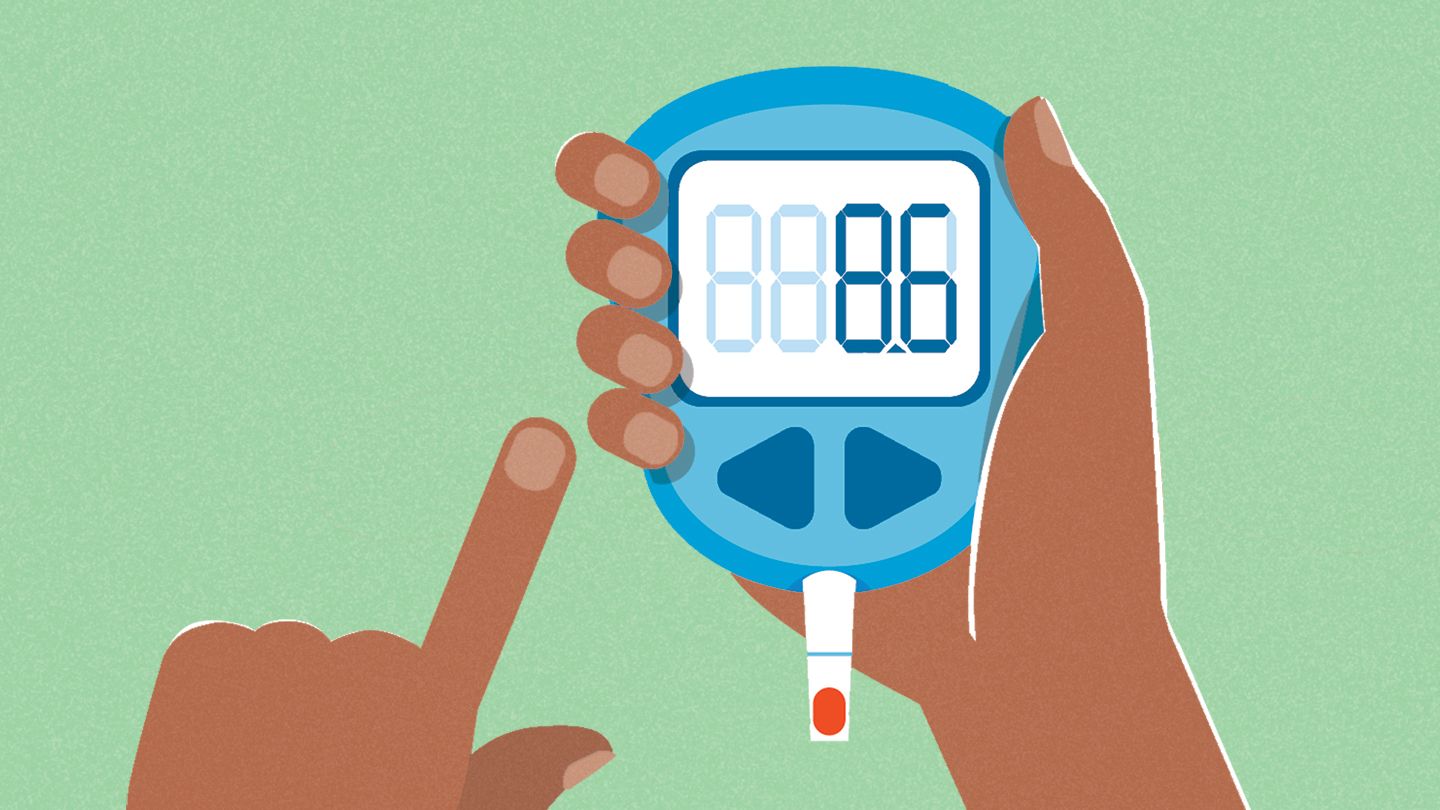BY SEAN WHOOLEY
Diabetes tech developers have high hopes for the year ahead, some of which have already come to fruition.
Change is continuous in continuous glucose monitoring (GCM), with expanded wear-times, improved accuracy and more. Meanwhile, never-ending innovation in insulin delivery is delivering wearable patches and closedloop delivery systems, making insulin management easier for people with diabetes.
Expectations were already high for new technology coming out of the diabetes space, and significant improvements last year only lifted those hopes higher. Let’s check in with a few companies promising big steps forward, including some that have already made significant progress.
Dexcom and its next-gen G7 CGM
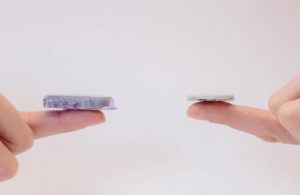
Dexcom’s G6 (left) and G7 (right) side-by-side. [Image from Dexcom]
San Diego-based Dexcom took several steps forward last year.
The company touted positive data regarding the accuracy of its next-generation G7 CGM and announced a significant regulatory nod and partnership for real-time application programming interfaces (APIs).
Dexcom also introduced the Dexcom One platform in a handful of European countries. Dexcom One uses the G6 hardware platform with a different software experience, marking the company’s first foray into a differentiated product portfolio.
“2022 holds about more activity than we’ve ever seen in a given year,” Dexcom CEO Kevin Sayer said in an interview. “It’s going to be a year of many of the same activities, but some very big advances on the product front. And then once we get the hardware platforms out there, we’re hopeful we can start coming up with several software solutions that are going to be different than what we’ve had in the past. It’s going to be a fun year.”
There is a sense among some analysts that G7 could receive FDA approval by June, while the company picked up CE mark for G7 on March 14.
“My people tell me in my own evaluations, ‘You’re not very good at celebrating, you always want to push,’ but we recognize what a great year this company has had — really the past two years during these trying times,” Sayer said. “We’ve grown almost a billion dollars in revenue in two years when the world has been nearly at a standstill. That’s awfully, awfully amazing. It’s been a great time period for us.”
Bigfoot and a ‘holistic’ offering
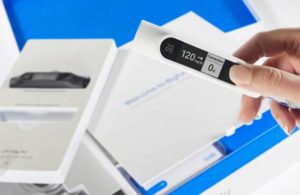
[Image from Bigfoot Biomedical]
Bigfoot Biomedical made its Bigfoot Unity diabetes management program available in select U.S. markets last year, launching what it sees as an all-in-one offering that could disrupt the diabetes space.
Bigfoot co-founder and CEO Jeffrey Brewer calls Bigfoot Unity a “transformational attempt” to simplify CGMs and the data they produce. It’s comprised of a smart insulin pen cap that takes data from a CGM and informs a patient of exactly how much insulin they need at a given point in time.
The Milpitas, California–based company partnered with Abbott to integrate Abbott’s FreeStyle Libre 2 CGM sensor into Bigfoot’s system, letting Bigfoot’s pen caps “talk” to the FreeStyle Libre.
Everything in Bigfoot Unity comes in one box, with the “holistic” platform trained by Bigfoot and supported by Bigfoot as opposed to different components provided by different companies. The platform also supports patients who are switched from one brand of insulin to another, sending them a new pen cap that fits with the insulin pen from the new manufacturer.
“People don’t want data. They want to know what to do and how to stay safe and that’s what Bigfoot Unity does. … We think it really points the way forward in terms of the consumerism of healthcare,” Brewer said. “It’s a great example of how you can make something simpler, easier and more accessible to a large population of people.”
Senseonics and the 6-month sensor
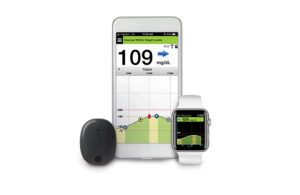
The Eversense CGM [Image courtesy of Senseonics]
Chief Medical Officer Dr. Francine Kaufman said in January that FDA approval for its next-generation Eversense E3 CGM was “imminent,” echoing what the company had been saying for some time. In February, that approval finally came.
Germantown, Maryland–based Senseonics designed the Eversense E3 with proprietary sacrificial boronic acid (SBA) technology to extend longevity to 180 days, or six months. Senseonics previously offered the system with a 90- day wear time.
Senseonics already has eyes on the next steps. They include extending durability to one year, a mark that could be reached with the help of chemistry modifications and fundamental changes in the sensing surface itself.
The company also plans to push calibration frequency to once per week and add a battery center that won’t increase the diameter but will marginally increase the length, allowing the transmitter to be taken off so the device can be used as an intermittent scanning device with other devices such as a smartphone.
“I still think that we’ll need CGM to be sure things are working well and to understand part of our physiology better,” Kaufman said. “What better device for that in the future than an implantable one that could last a year that you could query when you want to? And when you don’t, you don’t have to get that information. I’m just excited that we’ll have something that will be meaningful through this next evolution of how we manage diabetes.”
Other big steps forward
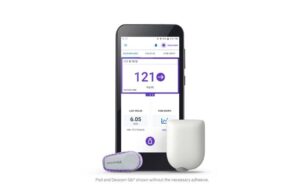
Insulet’s Omnipod 5 with the Dexcom G6 CGM. [Image from Insulet]
While Dexcom, Bigfoot and Senseonics have all made great strides, they aren’t alone in the diabetes space.
In January, Insulet (NSDQ:PODD) announced that it received FDA clearance for its next-generation Omnipod 5 automated insulin delivery system. The latest version of the company’s wearable insulin delivery pump system covers individuals aged six years and older with type 1 diabetes. The platform provides easier glucose management, with no multiple daily injections, no tubes and zero fingersticks.
In February, Tandem Diabetes Care (NASDAQ:TNDM) announced FDA clearance of bolus insulin dosing on the t:slim X2 insulin pump using the t:connect mobile app. The t:connect mobile app is now the first FDA-cleared smartphone app for insulin delivery on both the iOS and Android operating systems.
Source: drugdeliverybusiness
-
In accordance with Medical Device Authority (MDA Malaysia Ministry of Health, Malaysia), MyMedicNews serves as the leading online media in the medical device industry for Malaysia and the ASEAN region. We provide a creative one-stop web portal to deliver the latest news and product development in the medical device industry. Through our portal, key industry players can deliver business information, product, and services effectively to relevant target audience.
Disclaimer: All content is for informational or educational purposes only, and does not substitute professional medical advice or consultations with healthcare professionals. Medical device advertisements and their content are intended for Healthcare Professionals only. More information related to Malaysia medical device news, products, registration, and regulations is available on Medical Device Authority.

